This article was co-authored by Alex Dimitriu, MD. Alex Dimitriu, MD is the Owner of Menlo Park Psychiatry and Sleep Medicine, a clinic based in the San Francisco Bay Area with expertise in psychiatry, sleep, and transformational therapy. Alex earned his Doctor of Medicine from Stony Brook University in 2005 and graduated from the Stanford University School of Medicine's Sleep Medicine Residency Program in 2010. Professionally, Alex has dual board certification in psychiatry and sleep medicine.
There are 12 references cited in this article, which can be found at the bottom of the page.
This article has been viewed 9,555 times.
What is the first thing you do when you wake up in the morning? Some people might brush their teeth, while some might take a shower. It is important to build a healthy personal care routine that includes proper skin care, oral hygiene, and shower hygiene. Having a healthy personal care routine will leave you feeling refreshed and can improve your overall well-being.
Steps
Creating a Morning Routine
-
1Brush your teeth. Keeping the surface of your teeth clean can prevent cavities and gum disease.[1]
-
2Brush your tongue. Brushing your tongue can reduce bad breath by removing bacteria and food particles.[4]
- Use your toothbrush bristles or a tongue scraper. Some toothbrushes have a tongue scraper on the back.
Advertisement -
3Cleanse your face. Washing your face daily will remove accumulated dirt, bacteria, and oil.[5]
- Buy a suitable cleanser for your skin type. You can get varying cleansers based on whether your skin is oily, dry, or sensitive.
- Wet your skin and massage the cleanser on your face.
- Gently wash off the cleanser with warm water.
-
4Use a toner. A toner can further balance and replenish your skin by adding nutrients.[6]
- Saturate a cotton pad with the toner and pat onto face, avoiding your eye area.
- You can also apply the toner with clean hands, if you do not have cotton pads.
-
5Moisturize your skin. A moisturizer rehydrates and softens your skin after cleansing.
- Pick a suitable moisturizer for your skin type. Use cream, or oil-based moisturizer for dry skin. For oily skin, use gel or water-based moisturizer.[7]
-
6Wear sunscreen. UV light from the sun can cause skin cancer or add more wrinkles.[8]
- Choose a sunscreen with a broad spectrum SPF of at least 30.
- Apply sunscreen evenly 15 to 30 minutes before sun exposure.
- Reapply sunscreen at every 2 hours, especially if you are participating in outdoor activities like sports.[9]
Creating a Mid-day Routine
-
1Eat healthily. Poor nutrition can increase susceptibility to gum diseases. Improving your diet can prevent tooth decay and gum diseases.[10]
- Limit acidic beverages like soda and fruit juices. Food acids can erode the teeth enamel causing cavities.
- Reduce sugar intake like ice cream, brownies, and cookies. Bacteria can ferment sugar and produce acid that will damage your teeth.
-
2Drink more water. Dry mouth occurs when you do not have enough saliva to keep your mouth moist, which can lead to tooth decay and infection.[11] Drinking water can further hydrate your skin, and rid your skin of toxins.[12]
- Drink 8 glasses of water.
- Set a reminder to drink water, or carry a water bottle with you.
-
3Floss after meals. Flossing allows you to clean the tight spaces between your teeth and gums, which can prevent build up bacteria that cause plagues and gingivitis.[13]
- Use about 18 inches of dental floss. Hold floss tightly between your thumbs and forefingers.
- Gently guide the floss up and down between your teeth. When the floss reaches your gum line, curve it against one tooth, making a c shape.[14]
- Floss one tooth at a time.
Creating a Nighttime Routine
-
1Take a steam shower. Warm, steamy showers can increase blood flow, improve immune function, and ease muscle aches and pains. A steamy, night shower can also help you sleep.[15]
- Turn on the hot water in the shower.
- Close the bathroom door and windows to capture steam and increase humidity.
- Lower the water temperature from hot to warm. Go in and shower.
-
2
-
3Moisturize your body. After showering, you should rehydrate your skin with a moisturizer to prevent dry skin.
- Use lotion or oil-based moisturizing cream.
- Apply moisturizer within 3 minutes of showering to allow better absorption of the moisture.
-
4Repeat your skincare routine.
- Cleanse, apply toner, and moisturize your face again.
-
5Repeat your dental routine.
- Brush your teeth and tongue.
Daily Self Care Routine
Expert Q&A
-
QuestionHow do I take care of myself at night?
 Alex Dimitriu, MDAlex Dimitriu, MD is the Owner of Menlo Park Psychiatry and Sleep Medicine, a clinic based in the San Francisco Bay Area with expertise in psychiatry, sleep, and transformational therapy. Alex earned his Doctor of Medicine from Stony Brook University in 2005 and graduated from the Stanford University School of Medicine's Sleep Medicine Residency Program in 2010. Professionally, Alex has dual board certification in psychiatry and sleep medicine.
Alex Dimitriu, MDAlex Dimitriu, MD is the Owner of Menlo Park Psychiatry and Sleep Medicine, a clinic based in the San Francisco Bay Area with expertise in psychiatry, sleep, and transformational therapy. Alex earned his Doctor of Medicine from Stony Brook University in 2005 and graduated from the Stanford University School of Medicine's Sleep Medicine Residency Program in 2010. Professionally, Alex has dual board certification in psychiatry and sleep medicine.
Sleep Medicine & Psychiatry Professional Try to avoid bright lights or screens 2 hours before you go to sleep. Preferably, you want to engage in passive, relaxing activities like reading in a dimly lit room. Avoid checking your email, using your phone, or problem solving if you can. For the best sleep, keep a regular bed and wake time (even on weekends).
Try to avoid bright lights or screens 2 hours before you go to sleep. Preferably, you want to engage in passive, relaxing activities like reading in a dimly lit room. Avoid checking your email, using your phone, or problem solving if you can. For the best sleep, keep a regular bed and wake time (even on weekends).
Warnings
- Do not push the floss into your gums. Be careful not to injure and scratch your gums. If this is your first time flossing, you might bleed a little, but that is normal and it will get better.⧼thumbs_response⧽
- Do not shower in hot water, because hot water can damage your skin and dry it out.⧼thumbs_response⧽
References
- ↑ https://www.mayoclinic.org/healthy-lifestyle/adult-health/in-depth/dental/art-20045536
- ↑ https://dentistry.uic.edu/patients/oral-hygiene
- ↑ https://www.mayoclinic.org/healthy-lifestyle/adult-health/in-depth/dental/art-20045536
- ↑ https://www.mayoclinic.org/diseases-conditions/bad-breath/expert-answers/tongue-scraper/faq-20057795
- ↑ https://www.aad.org/public/everyday-care/skin-care-basics/care/face-washing-101
- ↑ https://www.nytimes.com/guides/tmagazine/skincare-routine
- ↑ https://www.nytimes.com/guides/tmagazine/skincare-routine
- ↑ https://www.fda.gov/consumers/consumer-updates/tips-stay-safe-sun-sunscreen-sunglasses
- ↑ https://www.nytimes.com/guides/tmagazine/skincare-routine
- ↑ http://knowyourteeth.com/infobites/abc/article/?abc=N&iid=315&aid=1274
- ↑ https://health.gov/myhealthfinder/topics/doctor-visits/regular-checkups/oral-health-older-adults-quick-tips
- ↑ https://www.uwhealth.org/madison-plastic-surgery/the-benefits-of-drinking-water-for-your-skin/26334
- ↑ https://dentistry.uic.edu/patients/oral-hygiene
- ↑ https://www.mayoclinic.org/healthy-lifestyle/adult-health/in-depth/dental/art-20045536
- ↑ https://www.medicalnewstoday.com/articles/324682
- ↑ https://showergem.com/blogs/news/the-shower-routine-that-experts-recommend
- ↑ https://www.medicalnewstoday.com/articles/324682#showering-in-different-seasons

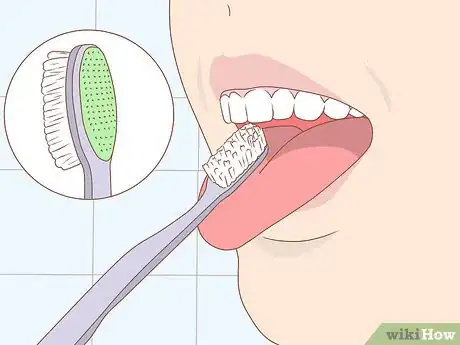



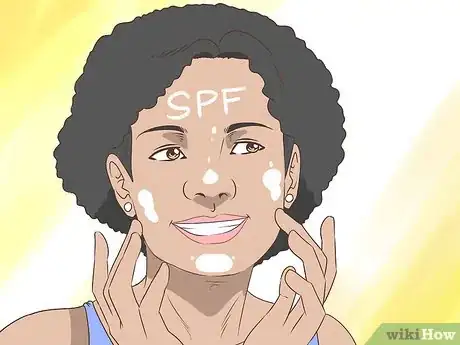


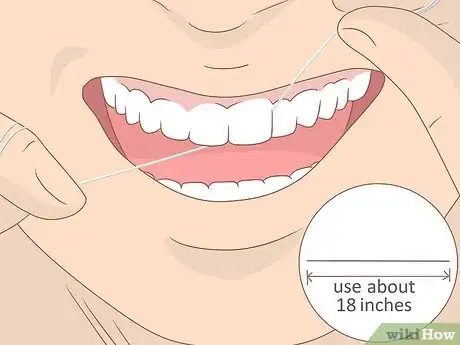
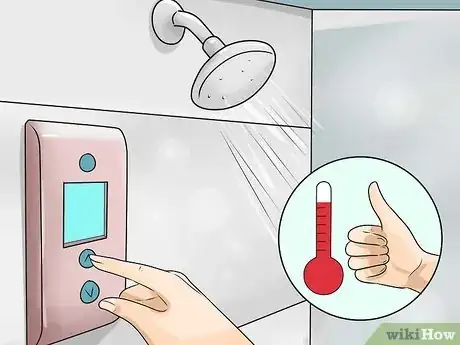
-Step-5.webp)
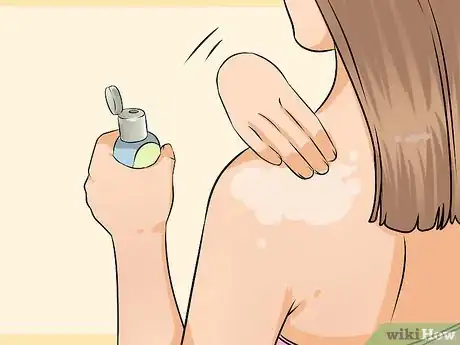

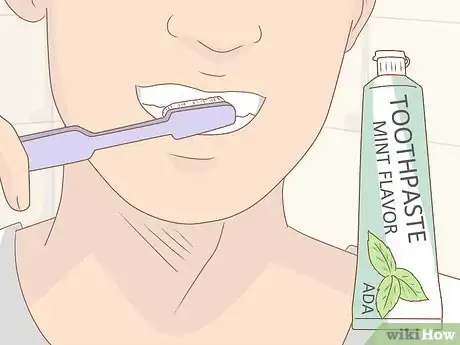













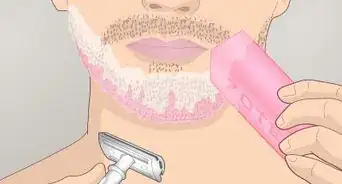














































Medical Disclaimer
The content of this article is not intended to be a substitute for professional medical advice, examination, diagnosis, or treatment. You should always contact your doctor or other qualified healthcare professional before starting, changing, or stopping any kind of health treatment.
Read More...